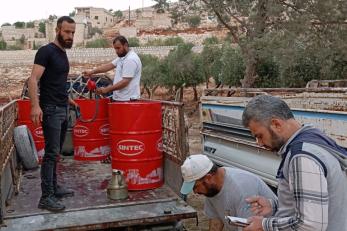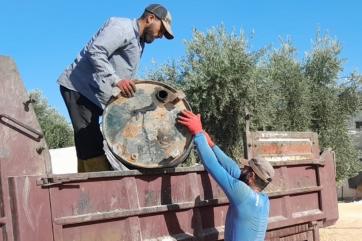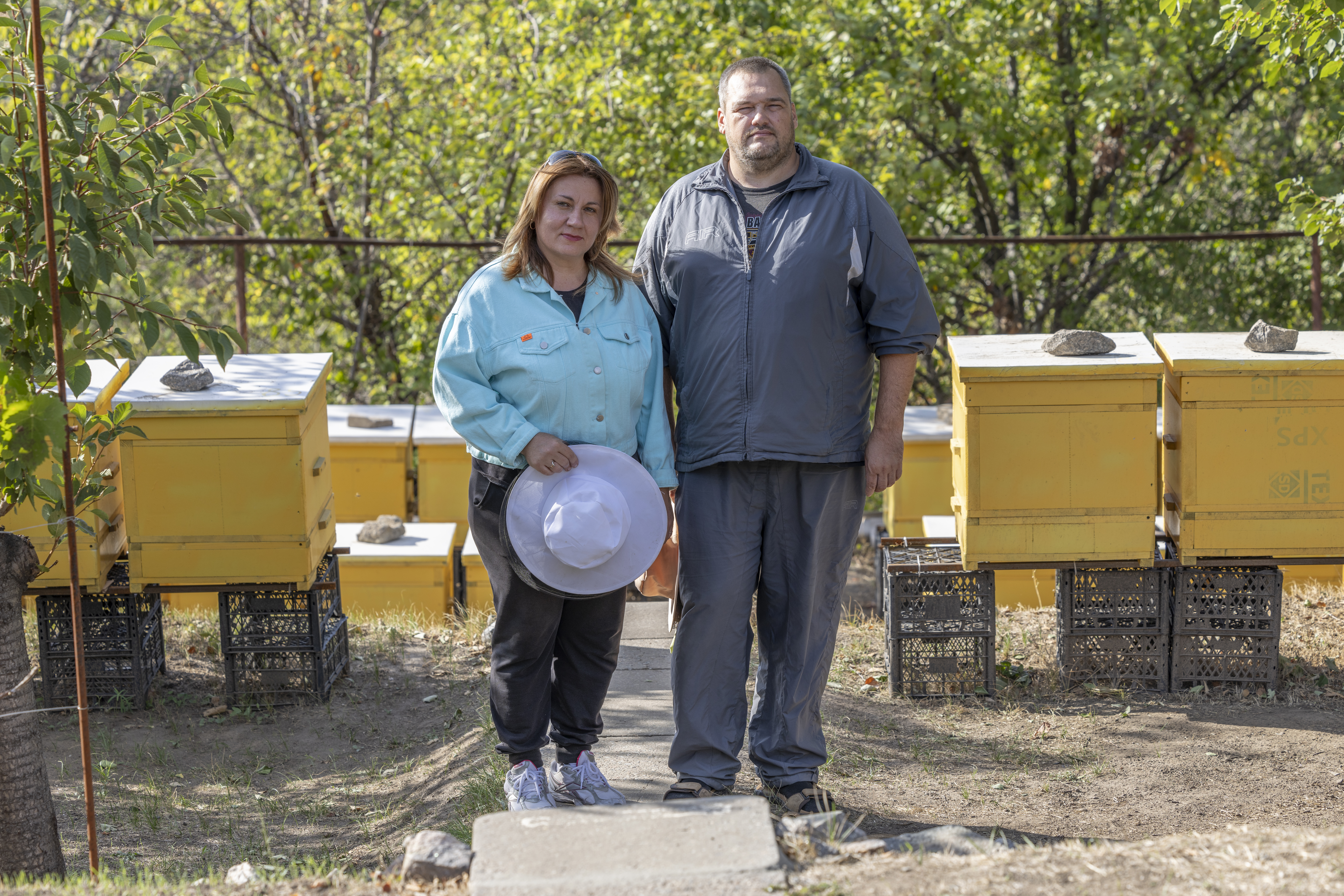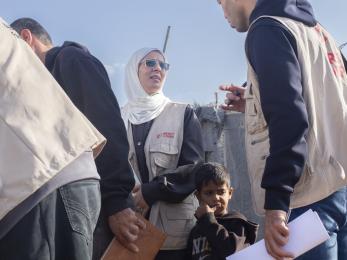Communities struggle to recover one year after earthquakes in Syria

On February 6, 2023, a 7.8 magnitude earthquake struck Northwest Syria and Turkey, killing 55,000 people and injuring tens of thousands more. One year on, the wake of the February 2023 earthquake continues to be a source of hardship for many communities in Northwest Syria who experienced additional earthquakes and aftershocks, food shortages, a dire economic situation, and the most substantial increase in hostilities in four years.
After a decade of conflict, more than 4 million people were already in dire need of humanitarian assistance in Northwest Syria before the earthquake struck. Today, approximately 2.9 million people are internally displaced, 2 million of whom live in overcrowded camps. Another estimated 800,000 of those people are sheltering in tents that are unable to withstand harsh weather conditions and have limited access to heating, clean water, or other necessities. “Our situation became even more challenging a year after the earthquake,” said a community member. “We lost our jobs, and now we are in debt to sustain our lives.”
Since 2008, Mercy Corps has been providing emergency aid and addressing sustained needs in Syria. We were already providing essential support including water, food, shelter, sanitation services, and livelihoods assistance to Syrians inside Northwest Syria displaced multiple times throughout the conflict. In February 2023, Mercy Corps mobilised quickly in the aftermath of the earthquake to deliver hygiene kits, shelter supplies, and other essential supplies to communities affected by the disaster.


Following assessments of short- and long-term needs, and with funding support from partners like the people of Taiwan and the French government, Mercy Corps launched activities to rehabilitate shelters, water systems, bakeries, schools, and hospitals. More than a thousand households received cash aid, and Mercy Corps is providing training and cash grants for entrepreneurs to develop businesses and earn an income. In camps for internally displaced people, we have built water points in order to provide more sustainable access to clean water. In addition to providing food kits, Mercy Corps is providing wheat flour and yeast to four bakeries to sell subsidised bread to earthquake-affected communities, reaching more than 50,000 people by February 2024.
Multiple generations have been impacted by this devastating combination of man-made and natural disasters. Many families have lost income sources due to the earthquake and ongoing conflict—whether from the destruction of physical infrastructures and lack of new supplies or the economic crisis. In some areas, daily income is estimated at approximately .50 to .70 cents per day, which is barely enough to survive.
Even as people in Syria are grappling with recovery in a conflict-affected region after a catastrophic natural disaster, my team and I have also witnessed great efforts in community members coming together to rebuild in the face of near-constant obstacles and the toughest circumstances. As part of Mercy Corps’ Taqaddam project, we are supporting community members to decide how to prioritise aid investments in their own communities. Participants are taking the lead in designing action plans in collaboration with local partners. Many of their decisions have been focused on providing livelihoods and small business support, vocational training, and job creation.
While the scale of need in Syria today is immense—requiring urgent access to essentials like water, food, shelter, livelihood support, and mental health services—communities are building toward more resilient approaches to recover from shocks or stresses. Through collaborative efforts with Mercy Corps, communities in Northwest Syria are establishing paths to more sustainable and resilient recovery.



